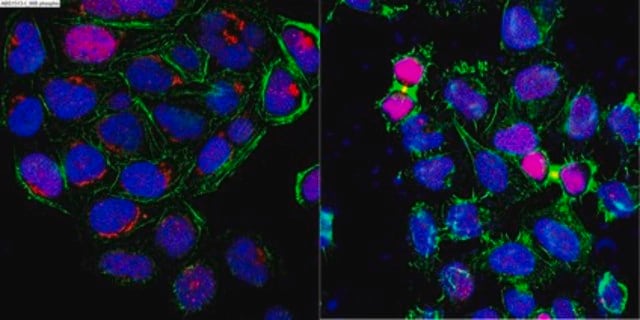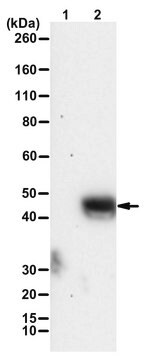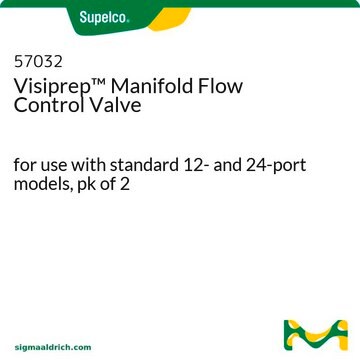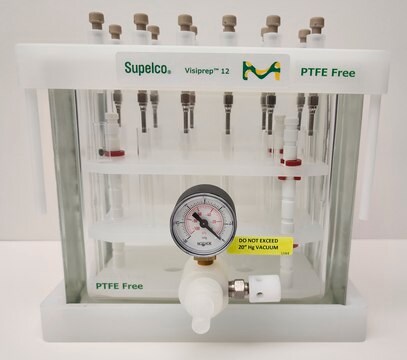ABS2206
Anti-phospho-Ubiquitin (Ser57)
About This Item
Empfohlene Produkte
Biologische Quelle
rabbit
Qualitätsniveau
Konjugat
unconjugated
Antikörperform
purified antibody
Antikörper-Produkttyp
primary antibodies
Klon
polyclonal
Mol-Gew.
observed mol wt ~28 kDa
Aufgereinigt durch
affinity chromatography
Speziesreaktivität
human
Speziesreaktivität (Voraussage durch Homologie)
mouse, chimpanzee, hamster, rat
Verpackung
antibody small pack of 100 μg
Methode(n)
affinity binding assay: suitable
western blot: suitable
Isotyp
IgG
Epitopsequenz
N-terminal half
Protein-ID-Hinterlegungsnummer
UniProt-Hinterlegungsnummer
Versandbedingung
2-8°C
Posttranslationale Modifikation Target
phosphorylation (pSer67)
Angaben zum Gen
human ... UBB(7314)
Allgemeine Beschreibung
Spezifität
Immunogen
Anwendung
Evaluated by Western Blotting with a construct containing GST-tagged recombinant fragment of Ubiquitin phosphorylated on serine 57.
Western Blotting Analysis (WB): A 1:1,000 dilution of this antibody detected a construct containing GST-tagged recombinant Ubiquitin phosphorylated on serine 57, but did not react with non-phosphorylated construct. (Phospho-Ubiquitin construct: Courtesy of Dr. Jesse Rinehart, Yale University, School of Medicine).
Tested Applications
Affinity Binding Assay: A representative lot of this antibody bound phospho-Ubiquitin (ser57) peptide with a KD of 1.0 x 10-12 in an affinity binding assay.
Note: Actual optimal working dilutions must be determined by end user as specimens, and experimental conditions may vary with the end user
Physikalische Form
Lagerung und Haltbarkeit
Sonstige Hinweise
Haftungsausschluss
Sie haben nicht das passende Produkt gefunden?
Probieren Sie unser Produkt-Auswahlhilfe. aus.
Lagerklassenschlüssel
12 - Non Combustible Liquids
WGK
WGK 1
Analysenzertifikate (COA)
Suchen Sie nach Analysenzertifikate (COA), indem Sie die Lot-/Chargennummer des Produkts eingeben. Lot- und Chargennummern sind auf dem Produktetikett hinter den Wörtern ‘Lot’ oder ‘Batch’ (Lot oder Charge) zu finden.
Besitzen Sie dieses Produkt bereits?
In der Dokumentenbibliothek finden Sie die Dokumentation zu den Produkten, die Sie kürzlich erworben haben.
Unser Team von Wissenschaftlern verfügt über Erfahrung in allen Forschungsbereichen einschließlich Life Science, Materialwissenschaften, chemischer Synthese, Chromatographie, Analytik und vielen mehr..
Setzen Sie sich mit dem technischen Dienst in Verbindung.








